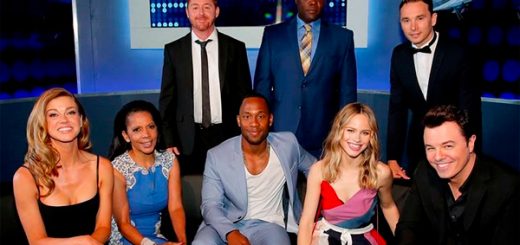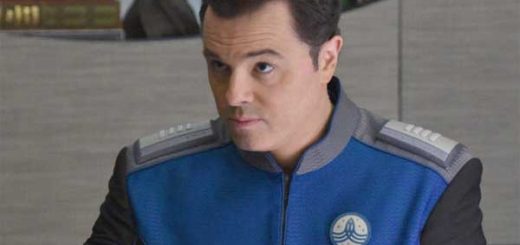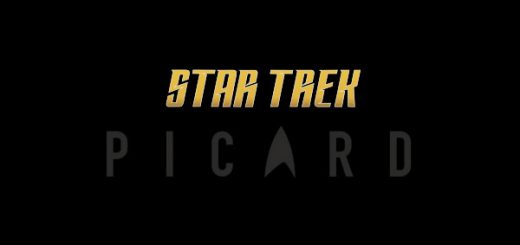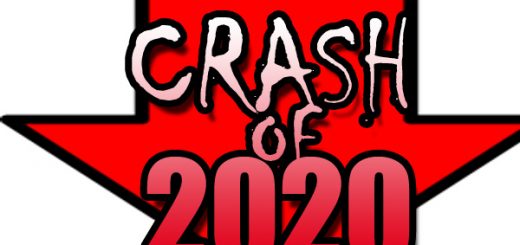Discovery Takes Star Trek Franchise Somewhere Else
Last time out I talked about Seth McFarlane’s new series The Orville, which was first out of the blocks in the TV space race for 2017. Second and not far behind comes the new CBS series Star Trek Discovery, the first Star Trek anything on TV in more than a decade. As with the more recent Trek movies, this one doesn’t add to the end of the Trek history, but rather picks a niche time before the original series time line and works from there. It’s an interesting place to look, but at the same time perhaps a little jarring to fans.
SPOLIER WARNING! I am going to talk about the first three episodes of Ster Trek Discovery here, and I will reveal details. If you don’t want details, stop reading now!
Star Trek Discovery is a first for a bunch of reasons. First and foremost, fans will be generally happy that this is not a “reset button” series. One of the truly annoying things about the earlier Trek series was that regardless of what had happened in previous shows, the crew always seemed to start the new episode off totally fresh, like a reset button had been pushed. ST:TNG started a trend to kill that, but didn’t always succeed. Voyager was by definition had fewer resets, but Episodes like Year Of Hell gave the script writers a sort of Bob Newart moment, where they basically woke up and it was all a dream. Seven of Nine was also used to move the ship away from one particular story arc war, into a new sector of space. Things like that allowed for a bit of a reset, but nothing like the original series had.
Discovery appears not to have a reset button at all. If anything, it appears that they have set the show up with a expiry date, as Federation history has already been written to some extent to the end of what starts here. It is perhaps a good way to be able to do the show for a couple of seasons and quit while they are still ahead, I don’t know.
The first two episodes of the show are in fact not the show at all. They are there solely to enact the two overall story arcs: War with the Klingons, and the protagonist as a mutineer officer who loses her commission and ends up in the brig for “life”. These two episodes are amazing in man ways, they have high end movie quality CGI that creates an entirely believable universe. It also has the “re-designed” klingons that no everyone likes or appreciates. It also has some pretty huge technology problems when compared to the previous series / timeline, you have to be willing to accept the concept of course that the pre-enterprise Federation had much better technology and much stronger abilities than any that came after them. Perhaps they will find a way to explain it off, but for now it’s a bit jarring to see hologram chats in place of the usual flat video communications, as an example. It’s one of those things that hard core fans just have to swallow and get over, I guess.
Discovery also does something that no Trek series has done before, which is that it’s main protagonist is not the Captain or leader of the ship, which leaves us in a position of being unsure of the motivations of many of the players. The lack of a “top down” view of the ship and it’s actions is new, somewhat challenging, but quite interesting. My guess is that much of the plot for the rest of the series will involve the main character (a girl names Michael Burnham) trying to figure out what the Captain of the Discovery is trying to do.
Episode three of the Star Trek Discover series is called “Context is for Kings”. The line itself is used almost at the end of the episode, as Discovery Captain Lorca says “Universal law is for lackeys. Context is for kings”. This again is a huge break for hard core fans of Trek, a Captain who apparently doesn’t seem bound by the rules. What he reveals as the main research being done on the Discovery is something that is, at very best, a questionable way to win the war that Burnham started.
I think that the overall feeling of the third episode is one of imperfection, a huge change from the near perfect world of Trek’s before. In the past, all of the main characters had generally noble goals, a strong foundation in upholding the prime directives, and were generally all perfect in every way. Even imperfections (such as Jordi LaForge being blind) was turned into a significant advantage rather than a negative. Here, we have a captain who appears to not respect all the rules, a research team who isn’t on side with the process, and even a room mate who appears to be a little bit on the autistic side. Clearly not everyone in the new Trek Universe is quite as snowy white and clean as those that have gone before them.
A little aside: I didn’t mention Deep Space Nine or Enterprise as I really never got much into either. I am not a fan of space soap operas, not am I much of a fan of Scott Bakula (sorry Scott!). I tried to watch both series but found myself hung up on the nature of the shows and the characters in them. DS9 ran hopelessly aground again and again with poor plot devices and barely tolerable plot twists to desperately put each character in peril, yet seemed to never come closer to resolving anything. In the real world, each of those people would have been long removed from their positions of power for being dweebs. DS9 was a nice extention of the ST:TNG universe, but in the end depended too heavily on that association to ever have built it’s own universe up. The lame “Bajor for Bajorans!” non-battle cry was perhaps one of the lamest concepts in Trek history.
The risk of Star Trek discovery sinking into the soap opera mess is a little higher than I would like. However, the feeling I am getting at this point is that the series will play out more like a murder mystery, giving you clues as to what is going on and leading you around a fair bit, never revealing “who dunnit” until late in the final act – and that final act may be nothing more than the setup for the next cycle, as the opening two episodes have been so far. I also think that the concept of “not the captain” as the star makes the series a little more fluid and slippery. I could see where the focus could in fact move away from Michael Burnham at some point to another character, allowing the series to flourish well beyond her personal experiences. It could in fact be a basis for a longer running Star Trek time line, with different people taking the lead character position to tell the longer term story of the Federation.
No matter what, I would say that CBS have the potential for a major hit on their hands. It’s really too bad that they have put it on their pay for streaming All Access product rather than on their main network, it suggests either they don’t see the series as strong enough to do well on the network, or that it’s too valuable to waste and will be more valuable in getting people to part with their $5 a month. It’s an interesting experiment that not only shows us a potential future of our universe, but perhaps more directly the future of how we will all watch TV.











